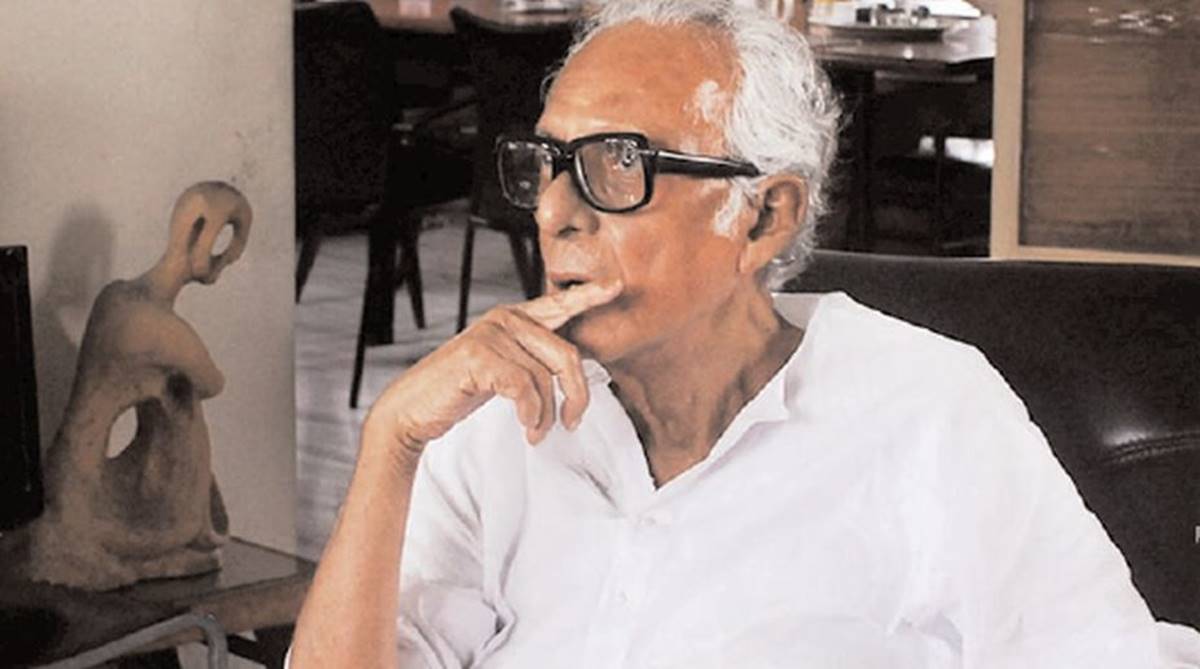Emotions in Ray’s films were so universal: Oz director Beresford
Satyajit Ray is probably one of the greatest directors ever and his films were powerful, said eminent Australian filmmaker Bruce Beresford today.
In all, Mrinal Sen made 28 full length movies and four documentary films; he also authored six Bengali and English books on subjects related to films

Mrinal Sen passed away on 30 December, 2018 in Kolkata.
Satyajit Ray, Ritwik Ghatak and Mrinal Sen — the three names are always uttered together when it comes to Bengali films. The first two had been gone for long; the last one to bid adieu was Mrinal Sen — the pioneer of Bengal’s new wave cinema.
No one projected a Bengali middle class citizen’s life such multi-dimensionally in films the way Sen did. His three Kolkata-centric films — Interview (1971), Kolkata 71 (1972) and Padatik (1973) — are a pointer to this fact. It was a time of unprecedented political turmoil, which Sen portrayed on screen with unmatched expertise.
Though he made political films, Mrinal Sen never got directly involved in politics. Politics was never his goal in life. His quest was deeper. A communist all along, Sen had been associated with the cultural wing of the Communist Party, but never accepted any party post. The political turmoil of the 1970s brought forth the real Mrinal Sen.
Advertisement
His two films — Ekdin pritidin (1979) and Kharij (1982) — had shaken the civil society. Ekdin Pritidin was a film that had as the main plot a woman not being able to return home from work one night, and the situations created out of the scenario. It was not only the story of a family, but it also portrayed the mindset of the entire middle class society, and made a big comment on the status of women in society. Kharij, on the other hand, documented in reel the middle class conscience and dilemma through the story of a boy who died of suffocation in a closed kitchen on a cold winter night.
Kharij justifiably got Special Jury Award at Cannes Film Festival.
READ | Mrinal Sen — the ‘accidental filmmaker’
In his 1980 film Aakaler Sandhane, Sen contrasted a fictional famine plot of the 1942 against the present situation. This film too got the Special Jury Award at Berlin Film festival.
As a film director, Mrinal Sen’s debut had been with Raat Bhore (1955) in which Uttam Kumar played the lead role. It didn’t do well. He came back with Neel Akasher Neeche in 1885. The film had the last days of Kolkata under the British rule as its plot. Due to its political content, the film had been banned by the government. But when it finally released two months later, the news of ban had created enough curiosity for the film to make it a talking point. Sen’s international fame came from his next, Baishe Shrabon.
In 1969, he made Bhuban Shome, which was based on a story by acclaimer writer ‘Banaful’. Utpal Dutt played the main character in the film that was an attack on bureaucracy. A lot of people call Bhuban Shome Sen’s best work. It fetched him the National Awards for best film and best director.
Sen won National Awards several times. He had been honoured at Cannes, Berlin, Moscow, Chicago, Montreal, Venice and Cairo film festivals too. The Bengali middle class life, their values, rules, confusions and political dissent — every issue reached the world cinema stage courtesy Mrinal Sen.
READ | Legendary Bengali filmmaker Mrinal Sen passes away
And he had been honoured for this across the world. Sen was conferred Padma Vibhushan, Dadasaheb Falke awards in India, while France bestowed its highest civilian award, Commander of the Order of Arts and Letters, on the legendary filmmaker. Russian President Vladimir Putin had honoured Sen with ‘Order of Friendship’.
Mrinal Sen was born on 14 May 1923 in Faridpur (now in Bangladesh). After schooling in Faridpur, he came to Kolkata’s Scottish Church College where he pursued graduation with Physics (Honours) before joining the Calcutta University to do his Masters. After working as a journalist, medical representative and audio technician in films, Sen finally enter into the business of filmmaking, having influenced by the French new wave cinema. He was referred to as the ‘Eisenstein of India’ by many.
Besides Bengali, Sen made films in Hindi, Odiya and Telugu too. His multilingual Genesis (1985) was simultaneously made in Hindi, French and English. No other Bengali director had made films with such vast range of subjects and genres. He broke many rules and prepared his own language of films.
READ | When protest had a language of its own
In all, Mrinal Sen made 28 full length movies and four documentary films. He had also made a film, Ichhapuran, on Rabindranath Tagore, but it could not be released. Sen also authored six Bengali and English books on subjects related to films. Among them were Charlie Chaplin-er Jeebani’, ‘Cinema And I’ and his autobiographical ‘Amar Jeeban’. His books are part of curriculum at different universities in india and abroad.
A few words should be written about his wife and great actress Gita Sen, who had been with him all her life. Her roles and acting in Khandahar and Aakaler Sandhane cannot be forgotten.
Legendary Satyajit Ray had once made some critical comments in The Statesman on Sen’s film, Akash Kusum. In his defence, Mrinal Sen had replied to Ray through a letter. They exchanged at least seven or eight letters, which were chronologically published by The Statesman — something unprecedented in the history of Bengali cinema.
(This report was originally published in Bengali in Dainik Statesman)
Advertisement